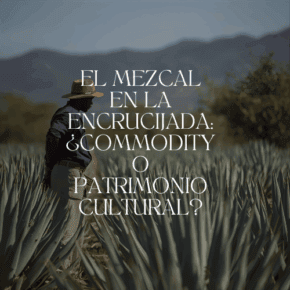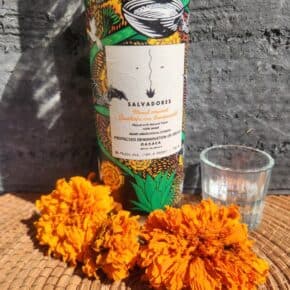Like a lot of people in the world of mezcal, this is an issue I think about a lot – how to find the delicate balance of promoting an amazing spirit with supply and production limitations. The New York Times piece that hit over the weekend, Here, Try Some Mezcal, but Not Too Much, came just as I was mulling over how to write about the current demand for heirloom corn from Mexico and potential problems that could arise.
We live in a world that is completely fixated on what I like to call the rockstarification of everything. Things can’t just be, they need to BE. The focus in restaurants on providing great and authentic tasting corn tortillas has pushed heirloom latino ingredient provider Masienda into the limelight. Utterly fantastic given who is behind the company, and the quality and interest they are drawing to the values laden business model. Who doesn’t want to support the production of heirloom corn varieties in Mexico, the birthplace of domesticated corn, after all? Look at Rick Bayless’ Frontera Foods, and their new line of tortilla chips that include heirloom corn from Masienda. This is terrific news for the industry – availability of high quality, delicious, non-GMO corn, supporting the production of heirloom varieties, and therefore small family farming in Mexico that has been virtually wiped out from NAFTA and the increasing reliance on corn imports from the United States. This is certainly what (us) food activists have been pushing for.
But, maybe, just maybe we are putting the cart before the horse so to speak, and if the structure is not on the ground to support this explosive demand, then we might end up doing more harm than good. Which brings me back to mezcal. Mezcal is in the limelight and is receiving its long due acclaim, something so many of us who have been extolling its virtues for years have been working toward. Great tasting, craft production, economic development opportunities, terrific story, so many reasons to want to see this industry grow and succeed. But much like with corn, perhaps we are putting the cart before the horse.
There are so many systemic issues in mezcal production. From how to best grow agave, to fair pay, environmental impact, maintaining flavor diversity, issues that are just being discussed and certainly are no where near to being solved. Obviously we are not going to stop drinking mezcal so we can solve these things, but what do we need to do to simultaneously protect the industry for future survival while meeting the demand – the conundrum. Of course I think education is the key– making both industry reps and consumers aware of not only what they are drinking, but what goes into it is integral to its success. But I also think we need to educate and/or put pressure on the business side of the industry (brand owners, sales reps, bartenders, ambassadors, I am looking at you), especially as more money comes into the industry, as the push for greater volume increases, as the pressure to encourage the short cuts for greater profit and gain takes hold, and as more people or companies decide they have to start a brand.
Max and I started Mezcalistas because we loved everything about mezcal– the flavors, the stories of the people making it, the land it came from, the potential for economic opportunities for the people and communities where it is made. We crafted a simple tagline – we like mezcal and think you should too. But, in seeing its success, I also feel conflicted, like so many people interviewed in that Times article. The very attributes of what makes mezcal, mezcal, are being eroded and in the race to make it the biggest thing ever, we risk destroying its essence. As the eternal optimist, I hope the self awareness by so many in the industry will ultimately help protect it from becoming just another alcoholic spirit.
To bring it back to the rockstarification comment at the beginning, Mezcal does not have to be The Rolling Stones, or even Mana. Perhaps it can just be Willie Nelson, a guy who could fill stadiums but instead has chosen to continue to play smaller venues and remain true to his roots all the while helping folks along the way, bringing awareness to the plight of the small family farmer and the struggles of rural America. Oh yeah, and he still makes great music and a solid living.












I love this! Especially the Willie Nelson comparison. At least on first reading I would say this is the way to go. Continue the discussion!
Great commentary as always. As for Uncle Willy (as this Texas boy has always thought of him), he is making some real money now in a legal marijuana company he started. Perfect. True story.